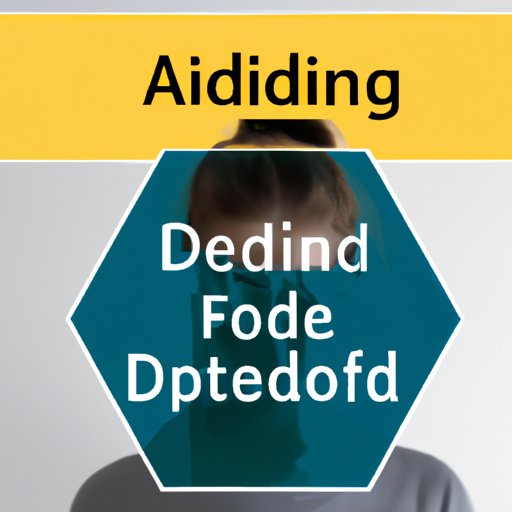
Introduction
Attention Deficit Hyperactivity Disorder (ADHD) is a neurodevelopmental disorder that affects millions of individuals worldwide. ADHD affects concentration and the ability to control impulses, and dopamine levels in the brain are typically lower in individuals with ADHD. In this article, we explore how to increase dopamine levels for individuals with ADHD, which can improve concentration, motivation, and overall health.
Exercise and Physical Activity
Regular exercise boosts dopamine and other neurotransmitters in the brain, which enhances mood, improves concentration, and reduces stress and anxiety. Exercise also improves overall health and helps individuals with ADHD maintain a healthy weight. It is essential to incorporate exercise into daily routines gradually. Simple ways to start include taking the stairs instead of the elevator and going for daily walks or jogs. As individuals get familiar with daily exercise, they can increase the duration and intensity.
Nutritious Diet
Diet plays a vital role in increasing dopamine levels for individuals with ADHD. Clean, high-protein foods improve dopamine levels and overall health. Recommended foods include lean meat, fish, nuts, and fruits and vegetables. Other recommended foods include foods rich in Omega-3 fatty acids, such as salmon, tuna, and walnuts. A healthy diet also helps individuals maintain a healthy weight, which contributes to overall health.
Mindfulness Practices
Mindfulness practices such as meditation and deep breathing exercises help increase dopamine levels and reduce stress and anxiety. These practices are easy to incorporate into daily routines and require minimal equipment. Individuals can allocate a few minutes each day to get started with mindfulness practices. Finding a quiet space and focusing on breathing are great ways to start mindfulness practices. As individuals progress, they can incorporate additional techniques and longer durations.
Social Interactions
Social interactions and positive social engagement help increase dopamine levels and overall well-being for individuals with ADHD. Individuals can join clubs or groups with similar interests or volunteer in the community to enhance social interactions. Engaging in activities that individuals enjoy is also a great way to connect with others and boost dopamine levels.
Adequate Sleep
Adequate sleep is essential for individuals with ADHD to increase dopamine levels and improve concentration. Creating healthy bedtime routines, such as avoiding electronic devices before bedtime, helps facilitate sleep. Establishing a consistent bedtime routine and practicing relaxation techniques before bed also help improve sleep quality and duration.
Music Therapy
Studies have shown that listening to music, especially classical music with a slow tempo, increases dopamine levels. Music therapy also reduces stress and anxiety and helps individuals with ADHD improve concentration. Individuals can incorporate music therapy into daily routines by listening to music during exercise or while performing daily tasks.
Conclusion
Increasing dopamine levels for individuals with ADHD is essential for overall health and well-being. Exercise, diet, mindfulness practices, social interactions, sleep, and music therapy are all great ways to help boost dopamine levels and improve concentration. These practices require minimal to no equipment and can be easily incorporated into daily routines. Individuals with ADHD are encouraged to try these practices and consult with their healthcare provider for further recommendations.




